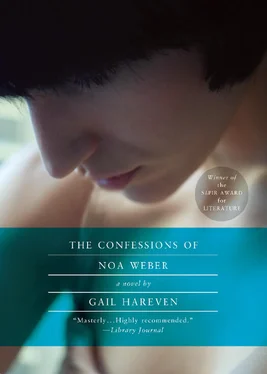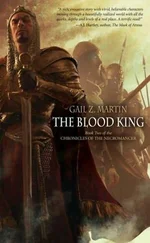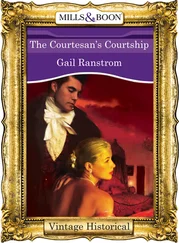“Which has no connection to sex.”
“Not necessarily. He isn’t against sex. But this is already related to the subject of androgyny, the missing half of every one, and also to the question of how ready is the soul. How high soul can lift … no, not lift, raise.…”
“Rise?”
He smiled. “Something like that.”
I took the book out of his hands. “In that case,” I said, “come and raise me up.” And he raised me, and how, or lifted me, whatever you like, and I definitely rose. Even my only one would laugh at me, I said, but Alek saw and knew and he never laughed.
ALEK RETURNED
Alek returned to Israel in the spring of ’77, this time as a journalist, an official observer from the side. He had a job with Radio Luxembourg, he freelanced for a number of European newspapers, and nevertheless you couldn’t say that he was “sent” here, because Alek wasn’t the kind of person that anybody “sent.” In recent years the interest he had once had in Israel is dwindling, and he no longer asks questions and gets angry as he did then, but when he left after the war in ’73, it was clear that there was something unresolved in his relations with the country that wouldn’t let him be, and it had to be this which prompted his return.
Alek came with Ute. First they lived on Palmach Street, a fifteen-minute walk from me, and then they moved to Musrara, about the same distance in the opposite direction, and I sensed nothing and guessed nothing. It took him nearly two months to get in touch.
When he returned I was already in my third year of legal studies, and ostensibly three and a half years more mature. I am referring to all the behaviors I had acquired by observing the women in the law faculty and imitating them. There weren’t many women in the faculty then, and with the exception of one girl in the ROTC, they were all older than I was, and most of them were good girls with fathers who were lawyers or judges. I imitated the way they dressed — clothes from the Old City were out — I imitated the way they spoke in seminars — intelligent and restrained — I imitated their expressions — intelligent and attentive — and I imitated their attitude to politics — that it was for students from other departments, who had time. Once in a while I would run into someone from my other, former life — Dalit from La Mama lived nearby and dropped in to see the baby once, the slimy Hyman would pop up occasionally on Ben Yehuda Street — but except for Yoash, they all seemed as if they belonged to another incarnation. Emotionally anesthetized, with a new, careful persona, I advanced steadily, on automatic pilot, towards goals I did not really desire. I had longings, of course. But the longing was no longer a threat. It could be lived with, the way one lives with a chronic disease; morning and evening you tether it under your ribs, and morning and evening you make all kinds of deals with it. Leave me alone now, and I’ll devote myself to you later. Let me be now, and I’ll let you loose later. If you just leave off now, I’ll unleash you when night comes. I had no doubt that Alek would return, so that in the end it was simply a question of how to pass the time, and I, with my Tatyana fantasy—“not the plain, timorous, lovelorn maiden whom he’d known.…”—and my kibbutz education, I simply tried to do it with dignity.
Longings. What is there to say about longings that hasn’t already been said? Perhaps only that in spite of all the negotiations and the postponement deals that I made with them, I wouldn’t really give them up. The void was Alek’s void, the absence wore Alek’s form, and therefore the absence was also a kind of presence with which I made love. The touch of his absence. Its clutch.
After he left — I know how ridiculous it sounds — I developed a foolish sensitivity to airplanes, I mean that I couldn’t resist looking up to follow their flight. “Airplane, Hagar … over there, above the tower, look, an airplane.…” But even when she wasn’t there I looked.
“And now the international weather forecast. Rome fifteen degrees, fine to partly cloudy. Paris nine degrees, fine and cold.…” Perhaps the Boeing was coming from that fine cold weather. In our part of the world it was the eve of the festival of first fruits, my mother had taken Hagar to the kibbutz, and I had forgotten to close the window, and by the time I came home the table would be covered with desert dust.
In the year 1977 I already had a telephone, a gift ordered by my parents which arrived in time for my twenty-second birthday and Hagar’s third. As far as I can remember people didn’t phone each other much in those days, and the conversations were shorter and more functional than they are today. And perhaps precisely for this reason I was already in the mindset of someone waiting for the phone to ring. For the phone to ring rather than for a knock at the door. From the mailbox, on the other hand, I didn’t expect anything; Alek who was fluent in Russian and French, and who read German and English, often said that he was unable to read and write in our language, that it was too frustrating, and it was clear that he wouldn’t try.
He said “Shalom” without identifying himself, and I said, “Where are you?” “Where am I? In phone booth on Zion Square, that’s where I’m standing now.” “What are you doing in Zion Square?” I asked, infected by the smile on the other end of the line. From the tone of his voice it seemed as if we had met yesterday and the day before, as if we hadn’t stopped talking, and this was exactly the confirmation I needed.
“It’s long story, I’ll tell you everything.… How are you?” His voice sounded very far away, intermittently drowned out in the noise from the street. “Where have you been?” “Where have I … nowhere. I’m here.” “It sounds as if you were running from somewhere.” “Most of the time I’m running.” “What did you say? It’s hard to hear.…” “I asked how you are.” “Fine.… All kinds of changes happened … plans … I have a woman I live with now … she’s here … we rented an apartment in Musrara, I signed a lease this week. When can I see you? It’s too long since I saw you.” “I’m studying law,” I said suddenly as if without any connection into the wind, for that was how it seemed to me, as if the two of us were snatching sentences from a roaring wind. “I’m studying law. In the end I succeeded in getting in. I have one more year to graduate.” “Law is good. It’s good … be so kind to tell me, please, when can we meet?”
All the time I knew that he had other women in Paris, women in long black raincoats, women in aromatic cafes smoking Gauloise, women who lived in attics with pigeons flying from the pediment when Alex went to shut the window. I didn’t spend much time thinking about it, I simply took it for granted, and only when I averted my face from another man’s kiss the images would sometimes arise. But somehow, in my foolishness, “I have a woman I live with” had never entered my head.
I told him that I would meet him at lunchtime the next day at Fink’s Bar. “You want Fink’s? Okay, if you want Fink’s, let it be Fink’s. I’ll wait for you there.”
Outside it was a heavy summer dusk, I was wearing a long tee shirt with only panties underneath it … one remembers such trifles. And when I replaced the receiver I felt a sudden panic at the silence in Hagar’s room, and I rushed to her. As if a catastrophe could have happened during this conversation, due to this conversation.… But my daughter was sitting on the rug surrounded by her stuffed animals and feeding them with a teaspoon.
In the four years that they lived in Israel I saw Ute twice. The first time, it was the first summer, they were standing together at the entrance to the Jerusalem Theatre, waiting in line for a Friday matinee film show. And a year or two later, also in summer, she came up Ben Yehuda Street and walked past me in the opposite direction. I was with Hagar.
Читать дальше












